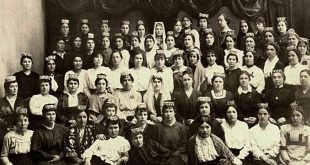Though the number of Latino Muslims is on the rise, experts and converts say that many are isolated after they join the faith.
Latin Americans Muslims, a rapidly growing population, struggle to find their place in the Islamic community.
In 2011, 6% of Muslim Americans identified as Hispanic, according to Pew Research Center; by 2017, it was 8%.
The phenomenon of Latinos converting to Islam reflects a culturewide shift away from Catholicism. In 2010, 67% of Hispanic American adults identified as Catholic, according to Pew Research Center; by 2013, that number had plummeted 12 percentage points to 55%. Many Latinos who left the Catholic church joined the evangelical movement — which has made inroads in Latin America in recent decades — or became part of country’s growing group of “nones” by leaving organized religion behind, but some became Muslims.
Many Hispanic converts to Islam say that praying directly to God without an intermediary is appealing, as is the unitary aspect of God. Some Latino converts also appreciate that figures from Christianity like the Virgin Mary and Jesus are also part of Islam, says Juan Galvan, author of the book “Latino Muslims: Our Journeys to Islam” who is himself a Latino convert to Islam.
Pointing to the history of Al-Andalus — which was, for hundreds of years, Muslim-ruled — Latino converts say that Islam is a deep-rooted part of the heritage bequeathed by Spain. They also cite cultural and linguistic connections between Arabs and Spanish-speakers, including the fact that the Spanish language absorbed thousands of Arabic words during the Muslim rule of the Iberian peninsula.
But Latino converts face a number of challenges. For one, they often feel isolated. Although there are fairly large Latino Muslim populations concentrated in Texas and New Jersey, for the most part, they’re scattered. When Latino Muslims go to their local mosques or community centers and meet groups of Muslims speaking Arabic or other languages among themselves, they can feel excluded. Some community leaders are concerned about retaining Latino Muslims in the faith after they’ve made the step of converting.
Twenty years ago, there was a dearth of materials in Spanish. Nowadays, with the internet, that problem has largely been resolved. But, today, Latino converts grapple with another issue: how to find their place in a community.
While there are some mosques in Texas that offer Friday prayers in both Arabic and Spanish, in general, there is a dearth of Spanish-speaking imams.
And when Spanish-speakers do seek to become imams themselves, they are encouraged to study overseas, which is often impossible for those with wives and families.
While new converts are celebrated by the whole community, soon after those people disappear from the convert’s support circle and the new Muslim finds himself or herself alone, adrift between their old community and their new one. Some mosques are trying to organize groups to offer continued support to new converts.
Additionally, converts sometimes have a hard time learning religious practices like wudu, in a way that those who have grown up in the faith don’t. Converts are sometimes intimidated by other aspects of the culture, like the food.
But Latino Muslims often end up adapting familiar dishes to halal specifications, says Madelina Nuñez, a doctoral fellow at Purdue University who is writing her dissertation on Latino Muslim food and who co-authored a chapter of the book “Cyber Muslims: Mapping Islamic Digital Media in the Internet Age.” Nuñez offers a quote from from a Latino Muslim, Richard Silva, stating, “‘They ask why I want to change my culture. I tell them I’m changing religión, not culture. I still eat tortillas.’”
Despite Latino Muslims struggles to be accepted by the community, but this group will leave an indelible mark on American Islam.
“Latinx Muslims are poised to play a more prominent role among their fellow Muslims in the U.S. and to continue to shape the practices and expressions of Islam in the U.S. and the wider Americas,” Ken Chitwood, author of “The Muslims of Latin America and the Caribbean” and a research and journalism fellow at University of Southern California’s Center for Religion and Civic Culture, wrote in an email.
source:deseret
 Ijtihad Network Being Wise and Faithful Muslim in the Contemporary World
Ijtihad Network Being Wise and Faithful Muslim in the Contemporary World
